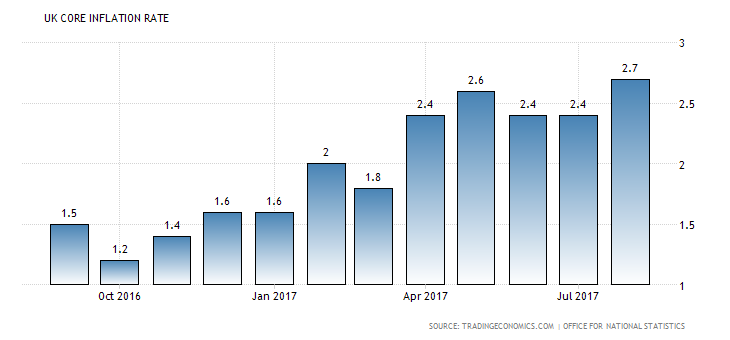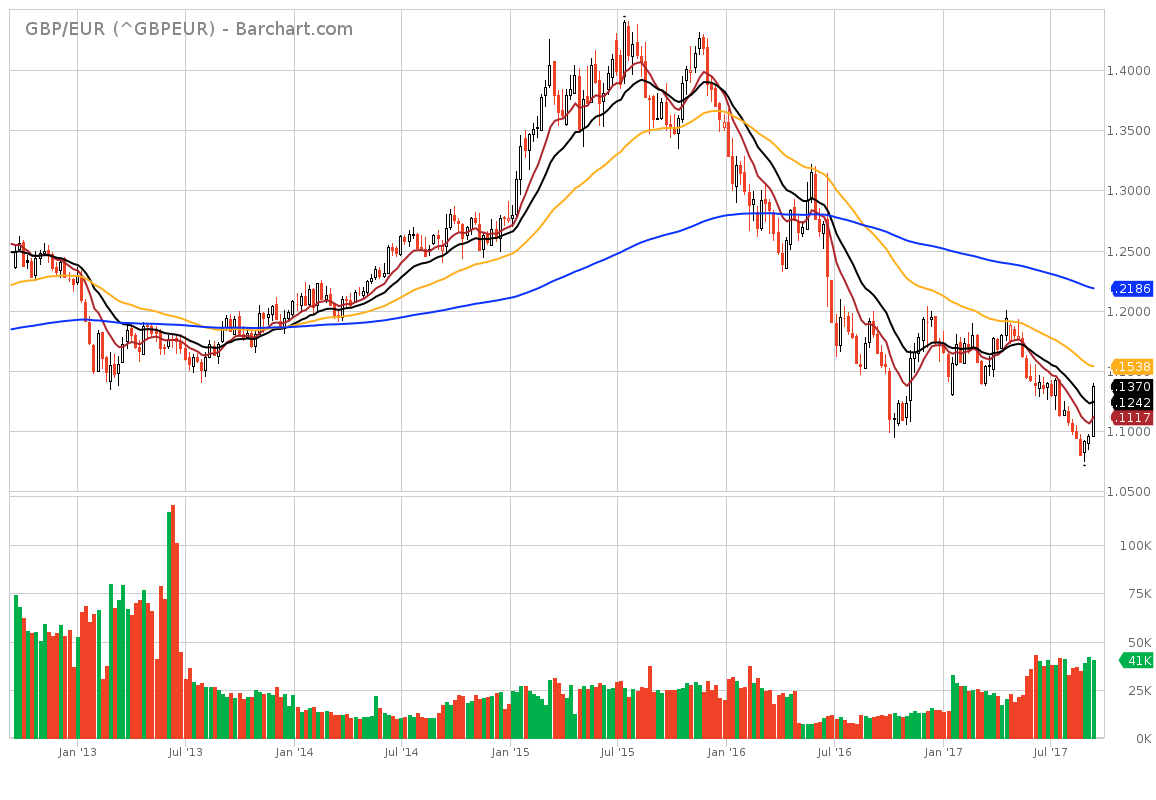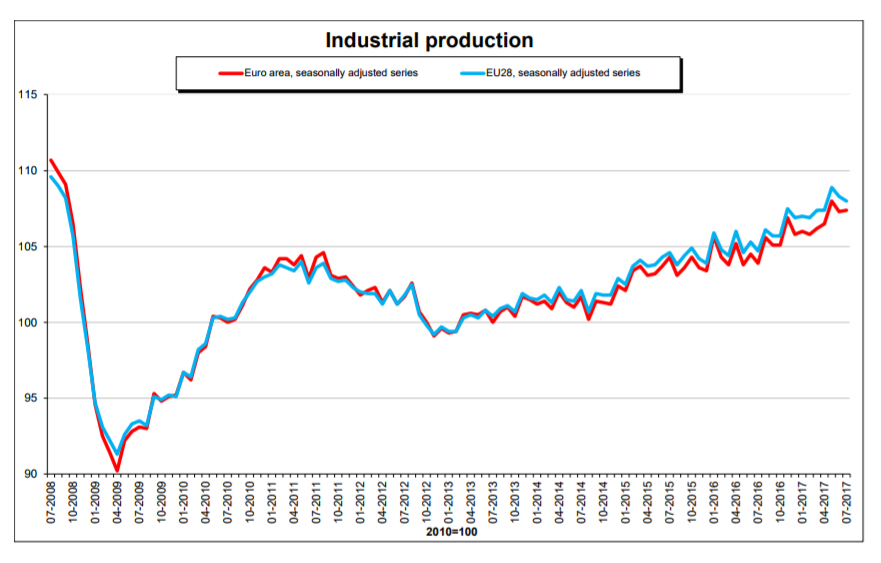Markit economic readings started to turn more bullish in the 4Q16. In the following months, this trend of improving economic numbers spread throughout the OECD countries: Canada emerged from a shallow, oil-induced recession; Brexit hasn’t caused a recession in the UK; Japan has started to grow at a stronger rate and Australia continues to expand modestly. Gavyn Davies of the FT wrote about the uptrend in his latest analysis of the real time economic Nowcasts. He was guardedly optimistic about future prospects. In response to his caution, I would be a bit more bullish. The global economy is entering the 4th consecutive quarter of stronger growth. Not only do we have duration but increasing breadth. Geo-political risk remains the primary wild card.
The Bank of England continues to be caught between a rock and a hard place. On one hand, the economy is growing: GDP rose .3% in the 2Q17, retail sales increased 1.3%, both Markit sentiment numbers point towards continued expansion and this week the ONS reported an unemployment rate of 4.3%. On the other hand, prices are accelerating: this week’s CPI had inflation at a 2.7% Y/Y percentage increase. More concerning is the increasing pace of prices:

This week’s policy statement – where the Bank kept rates at .25% -- acknowledged this policy conundrum:
Since the August Report, the relatively limited news on activity points, if anything, to a slightly stronger picture than anticipated. GDP rose by 0.3% in the second quarter, as expected in the MPC’s August projections, although initial estimates of private final demand were softer than anticipated. The unemployment rate has continued to decline, to 4.3%, its lowest in over 40 years and a little lower than forecast in August. Survey indicators are consistent with continued strength in employment growth. Evidence continues to accumulate that the rate of potential supply growth has slowed in recent years. Overall, the latest indicators are consistent with UK demand growing a little in excess of this diminished rate of potential supply growth, and the continued erosion of what is now a fairly limited degree of spare capacity. Underlying pay growth has shown some signs of recovery, albeit remaining modest
The sterling exchange rate has been volatile and the price of oil has increased. Headline and core CPI inflation in August were slightly higher than anticipated. Twelve-month CPI inflation rose to 2.9% and is now expected to rise to above 3% in October.
The circumstances since the referendum on EU membership, and the accompanying depreciation of sterling, have been exceptional. Monetary policy cannot prevent either the necessary real adjustment as the United Kingdom moves towards its new international trading arrangements or the weaker real income growth that is likely to accompany that adjustment over the next few years. The MPC’s remit specifies that, in such exceptional circumstances, the Committee must balance any trade-off between the speed at which it intends to return inflation sustainably to the target and the support that monetary policy provides to jobs and activity. Recent developments suggest that remaining spare capacity in the economy is being absorbed a little more rapidly than expected at the time of the August Report, and that inflation remains likely to overshoot the 2% target over the next three years.
All MPC members continue to judge that, if the economy follows a path broadly consistent with the August Inflation Report central projection, then monetary policy could need to be tightened by a somewhat greater extent over the forecast period than current market expectations. A majority of MPC members judge that, if the economy continues to follow a path consistent with the prospect of a continued erosion of slack and a gradual rise in underlying inflationary pressure then, with the further lessening in the trade-off that this would imply, some withdrawal of monetary stimulus is likely to be appropriate over the coming months in order to return inflation sustainably to target. All members agree that any prospective increases in Bank Rate would be expected to be at a gradual pace and to a limited extent.
The Bank clearly believes inflation is the larger problem. Not only are supply and demand nearing equilibrium but the sterling is near a 5-year low versus the euro (although it rallied this week thanks to the BOE's message):

This is undoubtedly impacting prices. A rate increase could help to stave off this depreciation which would help to limit the negative impact on import prices. Like all OECD central banks, the BOE is tacitly acknowledging that inflation-fighting credibility is hard to gain and very easy to lose. The bank is clearly leaning towards its inflation-fighting role.
News from the EU continues to be bullish. Industrial production increased .1% M/M and 3.2% Y/Y, continuing this statistic's multi-year uptrend:

There was modest output weakness in the big four economies and Eastern Europe. But this data series is volatile. In other news, EU employment was up .4% in the 2Q, which should continue to support consumer spending.
There was a smattering of news from Australia and Japan. In the former, unemployment was unchanged at 5.6%. In the latter, machinery orders rose the third time in four months, this time by 4.9%. And the revised July IP was for an increase of .8% M/M and +4.7% Y/Y.
Overall, the news continues in a positive vein.
